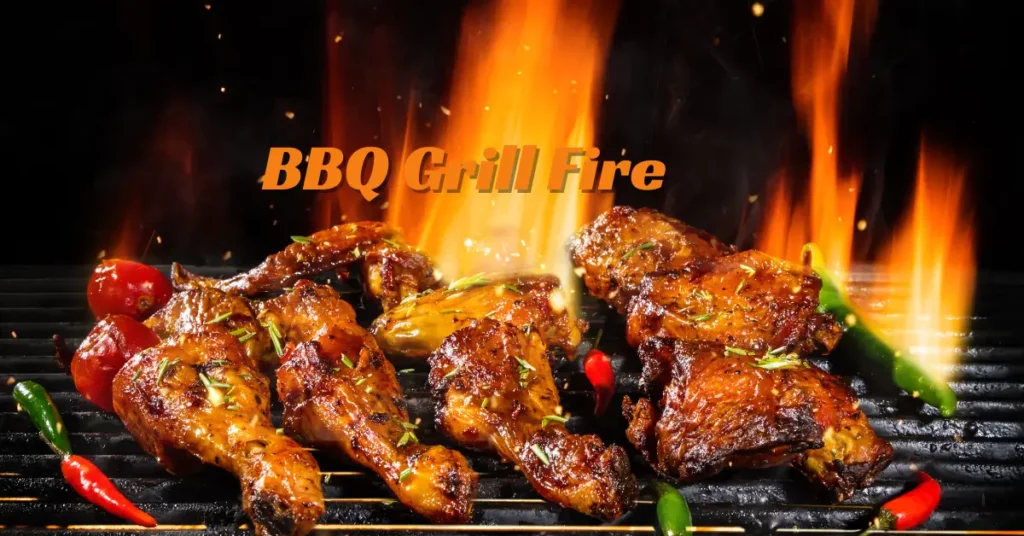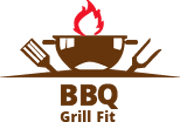This post may contain affiliate links. If you use these links to buy something we may earn a small commission. Thanks.
Grilling is a beloved pastime for many, but it also comes with risks one of the most serious being grill fires. A sudden flare-up can happen due to grease buildup, high temperatures, or even faulty equipment. Knowing how to put out a BBQ grill fire safely is crucial to preventing injuries and property damage. This guide will walk you through effective steps to handle a grill fire and provide essential tips for preventing future incidents.
Immediate Actions for Different Types of Grills
Different types of grills require different methods for fire suppression. Whether you have a gas grill, charcoal grill, or encounter a grease fire, quick and appropriate action is key.
A. Gas Grill Fire
Gas grills, which run on propane or natural gas, pose a significant fire hazard if not properly managed. If a fire starts while using a gas grill, follow these steps:
- Turn Off the Burners Immediately – If it is safe to do so, switch off the burners to cut off the fuel supply. This may stop the fire before it escalates.
- Shut Off the Gas Supply – Locate the propane tank or natural gas valve and turn it off to prevent more fuel from feeding the flames.
- Keep the Grill Lid Open – This allows any residual gas to escape, preventing the buildup of explosive fumes.
- Use a Fire Extinguisher or Baking Soda – If the fire persists, use a fire extinguisher rated for grease or gas fires (Class B or K). If you don’t have an extinguisher, baking soda can be used to smother small flames.
- Call Emergency Services If Necessary – If the fire gets out of control, evacuate the area and call 911 for assistance.

B. Charcoal Grill Fire
Charcoal grills are less likely to cause gas-related hazards, but they can still flare up dangerously. Here’s how to handle a charcoal grill fire:
- Close the Grill Lid and Vents – This cuts off the oxygen supply, starving the fire of its main fuel source.
- Spread Out the Coals – If the fire is minor, using long-handled tongs to spread out the coals can help them cool down faster.
- Use Baking Soda or Salt – These substances work well to smother the flames without creating harmful residues.
- Avoid Water – Pouring water over hot charcoal can cause steam burns and even damage your grill.
- Monitor the Area – Even after the flames die down, embers can remain hot for hours. Ensure the grill is completely cool before leaving it unattended.
C. Grease Fire
Grease fires are among the most dangerous types of grill fires because they can quickly spiral out of control. To handle a grease fire effectively:
- Do NOT Use Water – Water can cause grease fires to explode, spreading the flames even further.
- Close the Grill Lid – Limiting oxygen can help smother the fire.
- Apply Baking Soda or a Fire Extinguisher – Baking soda works well for small grease fires, but for larger ones, use a Class B or K fire extinguisher.
- Evacuate and Call 911 If Necessary – If the fire spreads beyond the grill, evacuate the area and seek professional help.
Tools and Supplies for Fire Prevention and Control
Having the right fire suppression tools on hand can make all the difference. Essential items include:
- Fire Extinguisher – A Class B (for flammable liquids like propane) or Class K (for grease fires) extinguisher is recommended.
- Baking Soda and Salt – Both work well to smother small grill fires without causing damage.
- Fireproof Gloves – These allow you to handle hot grill parts safely.
- Bucket of Sand – Useful for smothering charcoal grill fires without creating steam hazards.
Post-Fire Safety Measures
Once the fire is out, follow these steps to ensure your grill and cooking area remain safe:
- Confirm the Fire Is Completely Extinguished – Even if the flames are no longer visible, embers or residual heat can reignite a fire.
- Inspect for Gas Leaks (If Using a Gas Grill) – After the grill has cooled, check hoses and connections for leaks before using it again.
- Dispose of Charcoal and Ashes Safely – Always place used charcoal in a metal container with a lid and keep it away from flammable materials.
- Check for Structural Damage – If the grill has been exposed to intense flames, ensure it is still safe to use before firing it up again.
Preventing Future Grill Fires
Prevention is the best defense against grill fires. Follow these best practices to minimize risk:
- Clean Your Grill Regularly – Grease buildup in the drip tray and grill grates is a leading cause of flare-ups. Make it a habit to clean these areas after every use.
- Keep the Grill Away from Flammable Materials – Position your grill at least 10 feet away from your house, deck railings, trees, and other flammable structures.
- Monitor Cooking at All Times – Never leave a lit grill unattended, especially if cooking fatty meats that may cause grease flare-ups.
- Check Gas Connections and Equipment – Before using a gas grill, inspect the hoses and connections for leaks. A simple soap-and-water test can help detect gas leaks—bubbles forming on the connection points indicate a problem.
- Have an Emergency Plan – Ensure that everyone in your household knows what to do in case of a grill fire. Quick response can prevent injuries and property damage.
Conclusion
Grill fires can happen unexpectedly, but with proper preparation and knowledge, you can prevent them or handle them safely when they occur. Whether you use a gas grill, charcoal grill, or deal with a grease fire, acting swiftly and correctly is crucial. Always have the right fire suppression tools nearby, follow safety protocols, and conduct regular maintenance to reduce risks. By taking these precautions, you can enjoy your grilling experience safely and without worry.
